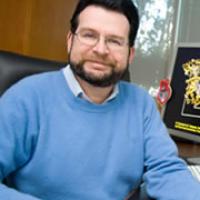The fundamental unit of all living organisms is invariably the cell, a self-contained system of numerous biomolecules that responds to and interacts with its neighbors and its environment. Areas of interest cover a wide range of scales and systems, such as the packaging of DNA within the nucleus, the organization and function of large complexes such as the ribosome, and the mechanical properties of cells themselves. Cells and the molecular systems contained within are studied using theories and techniques rooted in physics combined with the guiding principles of evolution. Techniques include molecular dynamics, optical tweezers, single-molecule spectroscopy, X-ray crystallography, nuclear magnetic resonance, and many, many more.






















